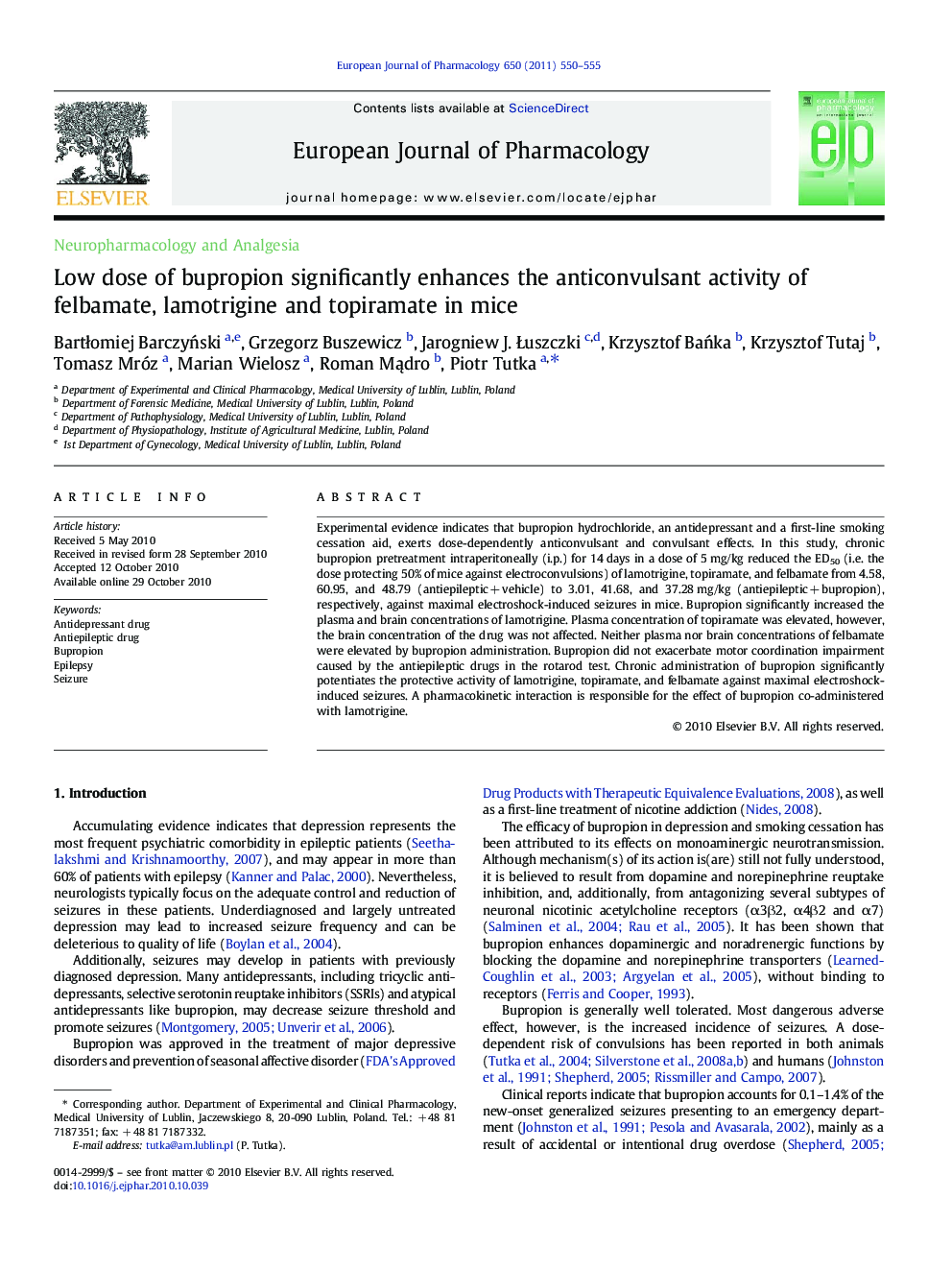| Article ID | Journal | Published Year | Pages | File Type |
|---|---|---|---|---|
| 2533027 | European Journal of Pharmacology | 2011 | 6 Pages |
Experimental evidence indicates that bupropion hydrochloride, an antidepressant and a first-line smoking cessation aid, exerts dose-dependently anticonvulsant and convulsant effects. In this study, chronic bupropion pretreatment intraperitoneally (i.p.) for 14 days in a dose of 5 mg/kg reduced the ED50 (i.e. the dose protecting 50% of mice against electroconvulsions) of lamotrigine, topiramate, and felbamate from 4.58, 60.95, and 48.79 (antiepileptic + vehicle) to 3.01, 41.68, and 37.28 mg/kg (antiepileptic + bupropion), respectively, against maximal electroshock-induced seizures in mice. Bupropion significantly increased the plasma and brain concentrations of lamotrigine. Plasma concentration of topiramate was elevated, however, the brain concentration of the drug was not affected. Neither plasma nor brain concentrations of felbamate were elevated by bupropion administration. Bupropion did not exacerbate motor coordination impairment caused by the antiepileptic drugs in the rotarod test. Chronic administration of bupropion significantly potentiates the protective activity of lamotrigine, topiramate, and felbamate against maximal electroshock-induced seizures. A pharmacokinetic interaction is responsible for the effect of bupropion co-administered with lamotrigine.
